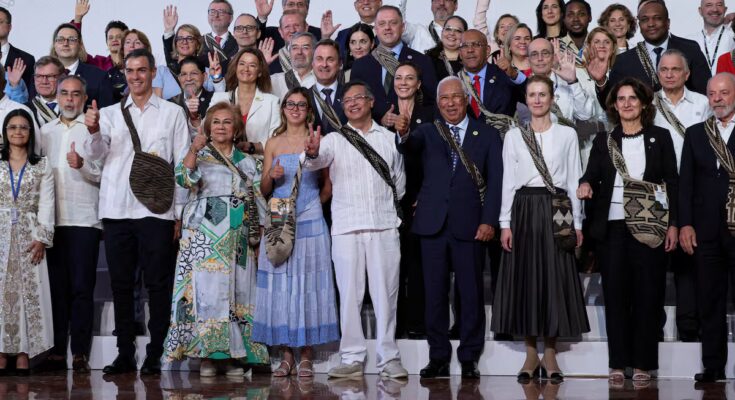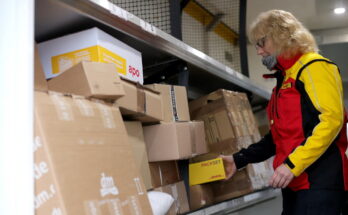The fourth summit of the Community of Latin American and Caribbean States (CELAC) and the European Union (EU), held this Sunday in Santa Marta (Colombia), was a wasted opportunity. The host president, Gustavo Petro, could not guarantee the number of heads of state that a meeting of this magnitude would have deserved. The choice of a Caribbean location far from traditional conventional air routes and without an airport equipped to receive large aircraft, common in the transfer of international delegations, was decisive.
Petro intended to take advantage of the presence of fifty authorities from all over the world in view of the COP30 climate summit held in Belém do Pará (Brazil), but he left a day between one meeting and another without activities that would end up discouraging the most hesitant from travelling. The result was an empty summit, with a few front-line leaders, including the Spaniard Pedro Sánchez, and dozens of smaller representatives.
Among the major absences is that of the president of the European Commission, Ursula von der Leyen, who, despite being in Belém on Friday, decided to send the community’s high foreign affairs representative, Kaja Kallas, in her place. The Union’s highest authority was the Prime Minister, António Costa, who hosted the summit together with Petro. It was an unforgivable foreign policy misstep. Beyond the content of the final document – which Nicolás Maduro’s Venezuela decided at the last minute not to sign due to an allusion to the “immense human suffering” caused by the Russian invasion of Ukraine – the Santa Marta summit was supposed to be an exhibition of multilateralism in the face of the diplomatic delusions of the president of the United States, Donald Trump. If Europe intends to oppose the unipolarity supported by Washington, supporting CELAC with a large presence of the authorities was the best strategy.
It is not enough to express good intentions if you do not then put them into practice. The European Union will now have the opportunity to deepen this path with the definitive approval of the free trade agreement with Mercosur, the alliance made up of Brazil, Argentina, Paraguay and Uruguay. The parties are confident that everything will be concluded on December 20, when the presidents of the South American bloc will meet in Rio de Janeiro. It will be the expected end of 25 years of negotiations and a new opportunity to show, once and for all, an alternative agenda to Trump. The Republicans’ tariff war must be responded to with more trade agreements. And to unilateral diplomatic decisions, with more dialogue.



